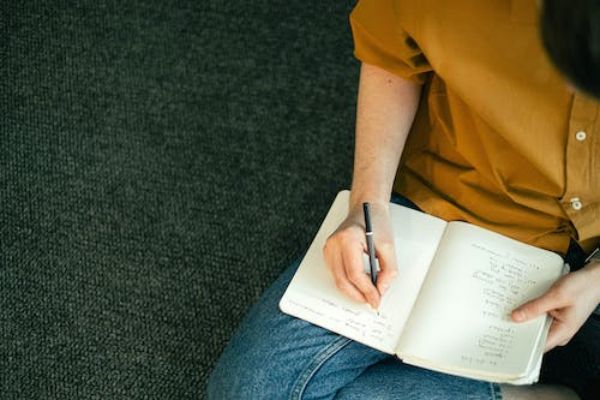你说的是反义问句么?举个例子好了。
Peter hasn't arrived yet ,has he?彼得还没到,是吧?--------------No,he hasn't.是的,还没到。

Your wife isn't in China now,is she?你的妻子不在中国对吧?----------------But yes ,she is.不,她在
英语反问句
在日常生活中,我们总是会想方设法强调自己话里的重点。比如现在天气那么热,你肯定会想说“今天天气很热”,末了加上一句“不是吗”来进行加强语气。
如果用英语说,那就是:
It’s very hot today, isn’t it?
这一类句子与普通的问句不一样,一般被称为“反义疑问句”,简单地说就是反问句。那么,我们该如何辨别英语里的反问句。
其实,这些句子大多数的形式是这样的:
陈述 + 反问
例:
1、She is a beautiful girl, isn’t she?
2、 You are an English learner, aren’t you?
3、I’m a good student, aren’t I?
(必须注意,I am形式的反义疑问是aren’t I,而非am not I)
那么反义疑问句的本质也是一个问句,对方也有作否定回答的权利。对此我们该怎么回答。
先看两个例子:
A: He is a good man, isn’t he?(他是一个好男人,不是吗)
Q: Yes, he is(是,他是)/ No, he isn’t(不,他不是)
上面(肯定句)很正常,但下面(否定句)估计就混乱了
A: He isn’t handsome, is he?(他不帅吧,对吗)
Q: No, he isn’t.(是,他不帅)/ Yes, he is(不,他帅)
90%的人初次接触否定的反问句都会搞错,因为它的英语和汉语意思是反过来的。愿意是:
锻炼“英语思维”,要暂时忘掉“汉语逻辑”,这就是一个典型例子。根据老外的语言习惯和逻辑,说“Yes”或“No”并非是根据对方问题决定的,而是根据自己的答案决定的。
Yes or No,与回答保持一致
肯定句为Yes,否定句为No
以及
回答只需根据问题,陈述你所认为的肯定/否定事实即可
反意疑问句的规律[全]
1) 陈述部分的主语是I,疑问部分要用 aren't I.
I'm as tall as your sister,aren't I?
2) 陈述部分的谓语是wish,疑问部分要用may +主语。
I wish to have a word with you, may I?
3) 陈述部分用 no, nothing, nobody, never, few, seldom, hardly, rarely, little等否定含义的词时,疑问部分用肯定含义。
The Swede made no answer, did he / she?
Some plants never blown (开花), do they ?
4) 含有ought to 的反意疑问句,陈述部分是肯定的,疑问部分用shouldn't / oughtn't +主语。
He ought to know what to do, oughtn't he? / shouldn't he?
5) 陈述部分有have to +v. (had to + v.),疑问部分常用don't +主语(didn't +主语)。
We have to get there at eight tomorrow, don't we?
6) 陈述部分的谓语是used to 时,疑问部分用didn't +主语或 usedn't +主语。
He used to take pictures there, didn't he? / usedn't he?
7) 陈述部分有had better + v. 疑问句部分用hadn't you?
You'd better read it by yourself, hadn't you?
8) 陈述部分有would rather +v.,疑问部分多用 wouldn't +主语。

He would rather read it ten times than recite it, wouldn't he?
9) 陈述部分有You'd like to +v. 疑问部分用wouldn't +主语。
You'd like to go with me, wouldn't you?
10) 陈述部分有must 的疑问句,疑问部分根据实际情况而定。
He must be a doctor, isn't he?
You must have studied English for three years, haven't you? / didn't you?
He must have finished it yesterday, didn't he?
11) 感叹句中,疑问部分用be +主语。
What colours, aren't they?
What a smell, isn't it?
12) 陈述部分由neither… nor, either… or 连接的并列主语时,疑问部分根据其实际逻辑意义而定。
Neither you nor I am engineer, are we?
13) 陈述部分主语是指示代词或不定代词everything, that, nothing, this, 疑问部分主语用it。
Everything is ready, isn't it?
14) 陈述部分为主语从句或并列复合句,疑问部分有三种情况:
a. 并列复合句疑问部分,谓语动词根据邻近从句的谓语而定。
Mr. Smith had been to Beijing for several times, he should have been in China now, shouldn't he?
b. 带有定语从句,宾语从句的主从复合句,疑问部分谓语根据主句的谓语而定:
He is not the man who gave us a talk, is he?
He said he wanted to visit Japan, didn't he?
c. 上述部分主句谓语是think, believe, expect, suppose, imagine等引导的定语从句,疑问部分与宾语从句相对应构成反意疑问句。
I don't think he is bright, is he?
We believe she can do it better, can't she?
15) 陈述部分主语是不定代词everybody, anyone, somebody, nobody, no one等,疑问部分常用复数they,有时也用单数he。
Everyone knows the answer, don't they? (does he?)
Nobody knows about it, do they? (does he?)
16) 带情态动词dare或need的反意疑问句,疑问部分常用 need (dare ) +主语。
We need not do it again, need we ?
He dare not say so, dare you?
当dare, need 为实义动词时,疑问部分用助动词do + 主语。
She doesn't dare to go home alone, does she?
17) 省去主语的祈使句的反意疑问句,疑问部分用will you。
Don't do that again, will you?
Go with me, will you / won't you ?
注意: Let's 开头的祈使句,后用shall we?
Let us 开头的祈使句,后用will you?
Let's go and listen to the music, shall we?
Let us wait for you in the reading-room, will you ?
18) 陈述部分是"there be"结构的,疑问部分用there省略主语代词。
There is something wrong with your watch, isn't there?
There will not be any trouble, will there?
19) 否定前缀不能视为否定词,其反意疑问句仍用否定形式。

It is impossible, isn't it?
He is not unkind to his classmates, is he?
20) must在表"推测"时,根据其推测的情况来确定反意疑问句。
He must be there now, isn't he?
It must be going to rain tomorrow, won't it?
免责声明:本平台仅供信息发布交流之途,请谨慎判断信息真伪。如遇虚假诈骗信息,请立即举报
举报